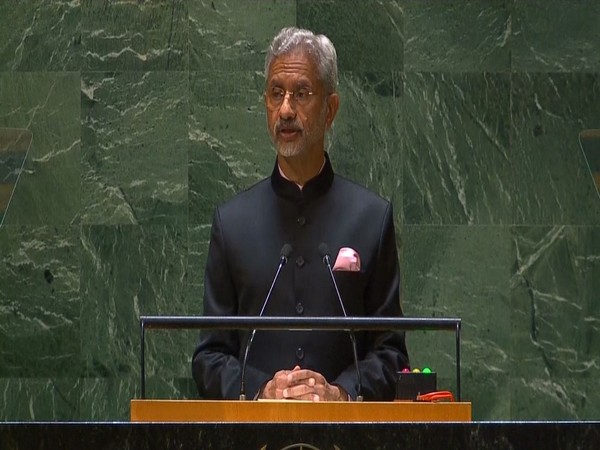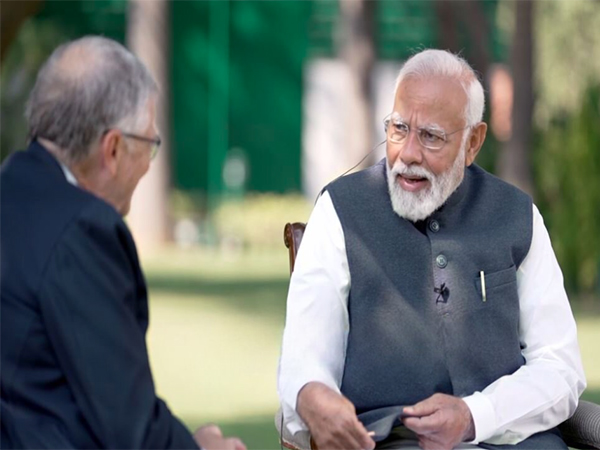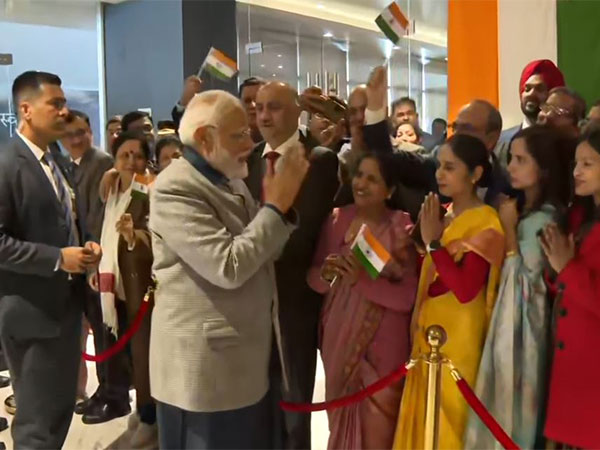A crucial and key aspect of the Bharatiya Janata Party’s (BJP) election campaign is the rallies that Prime Minister Narendra Modi addresses across India. Modi, 73, is a powerful orator and he has a hectic itinerary, criss-crossing the country to address public rallies, sometimes as many as three or even four in a single day. The rallies are usually huge, with hundreds of thousands of people turning up to hear him deliver his speeches, which resonate regardless of one’s political views. In India’s current political scenario there isn’t anybody else whose public speeches can match up to Modi’s.
Last week, in Cooch Behar a northern district of West Bengal, which will go to the polls on April 19 in the first phase of India’s 44-day parliamentary elections, Modi, in his customary style of exhorting public responses (and sometimes referring to himself in the third person), asked the crowd four rhetorical questions: Should we or should we not make India the world’s third largest economic power? For that do we need a strong government or not? Does Modi provide a strong government or not? Will Modi provide a strong government in future or not?
The target of making India the world’s third largest economy (measured by GDP) is not only attainable but it may even be low-hanging fruit–not very difficult to pick. Economists and organisations like the World Economic Forum (WEF) believe India’s economy is on track to become the world’s third largest, possibly by the end of this decade.
India is currently the world’s fifth largest economy with a GDP of around $3.7 trillion. The US and China hold the top two spots, followed by Japan and Germany.
India’s economic growth rate is expected to be around 6.7% on average over the next seven years, which is higher than most other major economies. This growth is fueled by factors like a large young population, increasing digital adoption, government reforms, growth in domestic consumption, and investment in infrastructure.
Several financial institutions believe India can achieve its target of becoming the third biggest economy within the next 3-7 years by maintaining a growth rate of around 7-8% This would require surpassing the growth rates of Germany and Japan, and staying competitive with China’s projected growth.
According to S&P, the American credit rating agency, India could achieve this goal by 2030, or, just after the end of term of the next Parliament. Others, including Modi, believe it could happen even earlier.
Shocking Inequality is Widening
Becoming the third-largest economic power would undoubtedly be a moment of pride for all Indians. Yet, the more important challenge–and one that no one, including Modi, likes talking about–is the deplorable level of economic inequality in India. While India’s policymakers and politicians have professed to make growth inclusive and ensure that the benefits of economic progress reach all segments of society, it has not happened.
In his speech at Cooch Behar last week, Modi claimed that in the past 10 years, his government had pulled 250 million Indians out of poverty. It is true that during his regime, which began in 2014, India has witnessed a significant decline in multidimensional poverty from 29.17% in 2013-14 to 11.28% in 2022-23. This represents a reduction of 17.89 percentage points. Multidimensional poverty indices break down poverty levels in different areas of a country and among various sub-groups of people, and consider factors besides only income–like education, health, living standards, and other essential aspects of well-being.
Yet, as poverty declines, income inequality in India has widened. According to Oxfam India’s “Survival of the Richest: The India Supplement”, the top 1% in India owned more than 40.5% of total wealth in 2021, while the bottom 50% of the population (700 million people) has around 3% of total wealth. From the beginning of the Covid pandemic till November 2022, billionaires in India have seen their wealth surge by 121%. That means by a staggering Rs 3608 crore per day in real terms (or Rs 2.5 crore a minute!).
Take a few moments to digest those numbers and then consider this: The country still has the world’s highest number of poor at 228.9 million. On the flipside of that is the fact that, according to Forbes, the number of billionaires in India rose from 169 last year to 200 this year, making it the world’s third largest concentration of the ultra-rich.
Additionally, the richest 10% in India collectively own 72.5% of the country’s wealth, further emphasising how acute inequality is in India and the fact that although India’s policymakers can feel proud about making it the world’s fastest growing economy, that pride is superficial. Modi’s avowed target of making India the third largest global economy means little really to the masses of people who gather to hear him speak at his election rallies.
Huge Challenge of Joblessness
According to Oxfam’s index, India ranks 147th out of 157 countries in terms of commitment to reducing inequality. India’s Gini index, which measures income distribution inequality, in 2021 was 35.7. The Gini index measures the extent to which the distribution of income or consumption among individuals or households within an economy deviates from a perfectly equal distribution. A Gini index of 0 represents perfect equality, while an index of 100 implies perfect inequality.
In a way, India is trapped in the cycle of inequality. Economic disparities hinder India’s poorest from being socially mobile and to move up the ladder. Economic inequality intersects with caste, gender, and background disparities, thus making it even more difficult to break out of that cycle.
Concentration of wealth in the hands of a few can undermine social justice and cohesion and further perpetuate inequality.
A classic textbook method of redistributing wealth is to tax incomes progressively. Yet, in India despite the concentration of wealth among a few, the number of people who pay taxes is abysmally low. Only 20.9 million people paid income tax in 2021-22. In the same year, there were 943.5 million adults among the population. Unless the income tax net is widened, meaningful redistribution of wealth will be impossible to achieve.
The biggest challenge that policymakers face is youth unemployment. According to data from the Centre for Monitoring Indian Economy (CMIE) released this year, youth unemployment (20-34 age group) has been on the rise. In the October-December 2023 quarter, 44.49% of those in the age group of 20-24 were unemployed, while for the 25-29 age-group it was 14.33%, and for the 30-34 age group it was 2.49%. Breakups of that data show that the problem is particularly acute in rural India where youth unemployment is at record levels. Remember too that the number of Indians that are 15-24 is estimated at 250 million, more than half the population of the European Union.
So when Prime Minister Modi exhorts crowds at his election rallies with slogans about making India one of the world’s most powerful economies, we might need to stop and wonder what power he is talking about.
For more details visit us: https://lokmarg.com/









